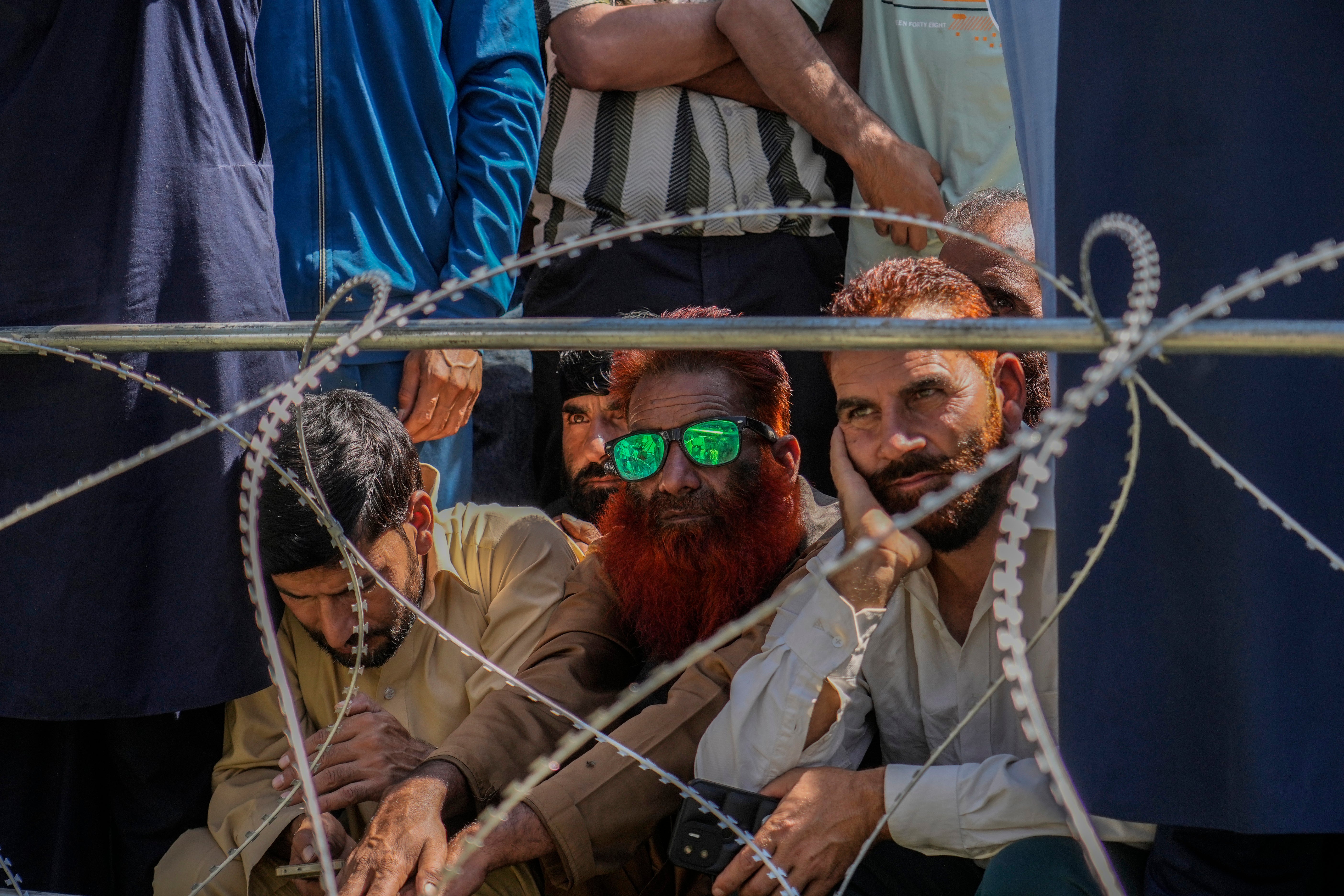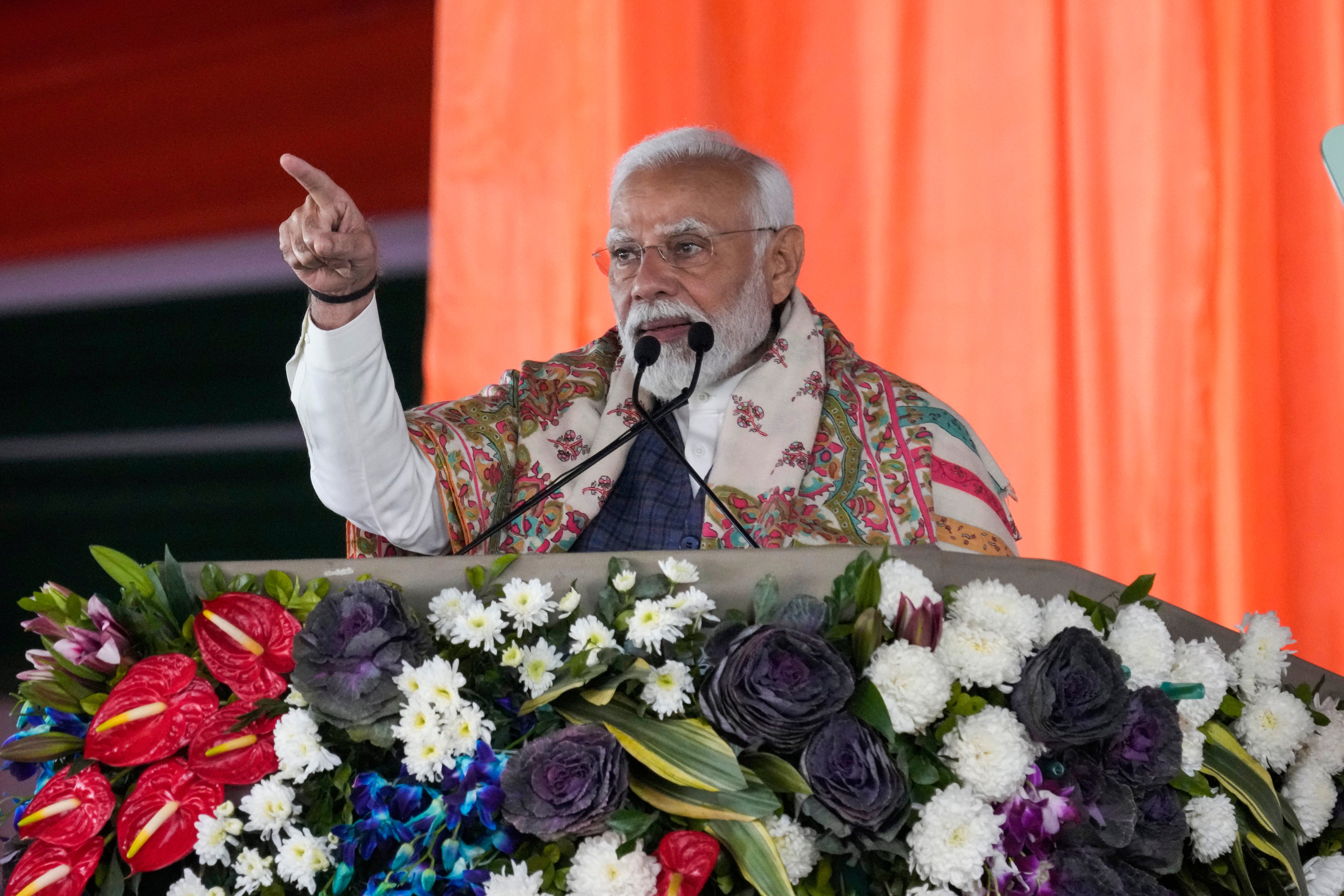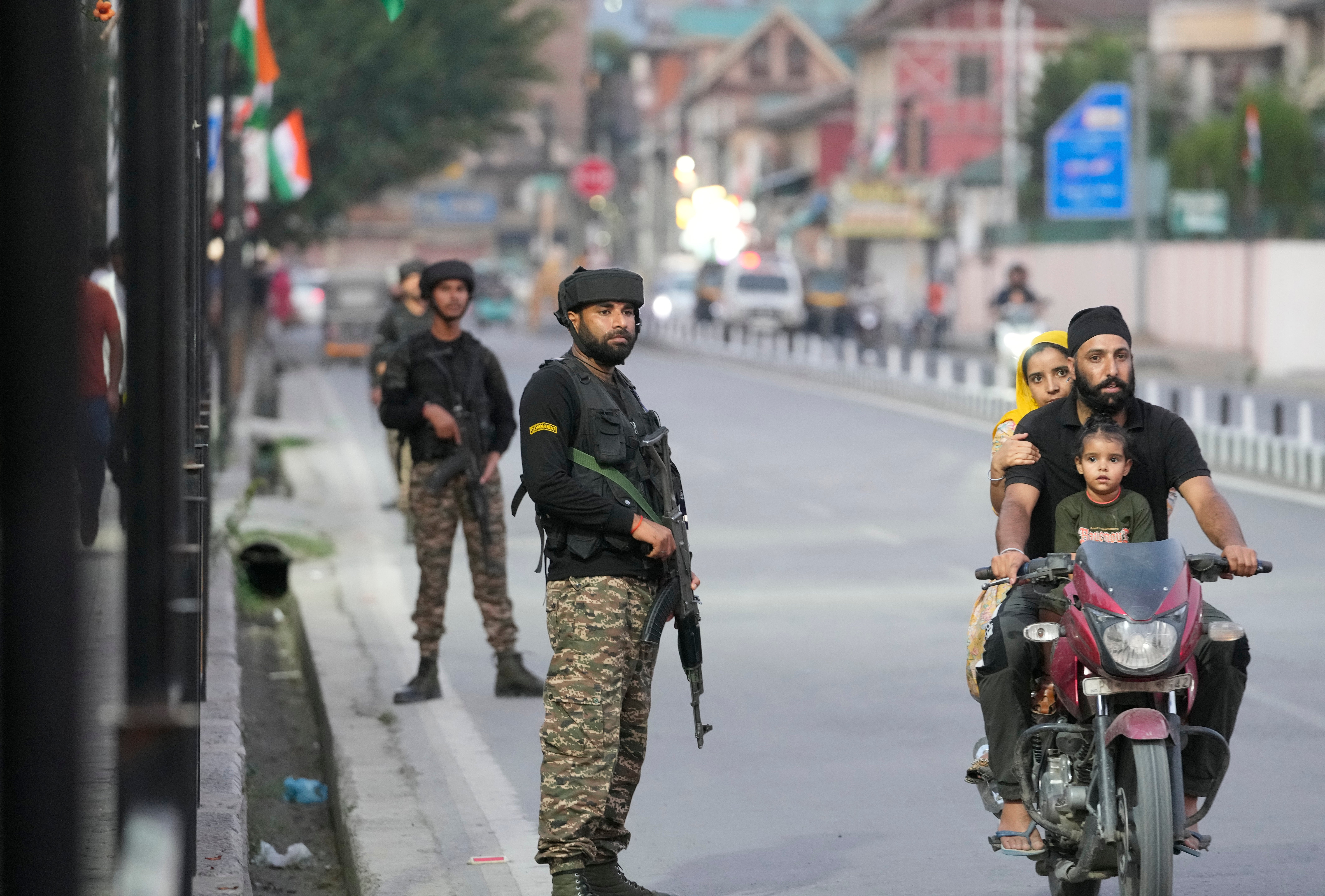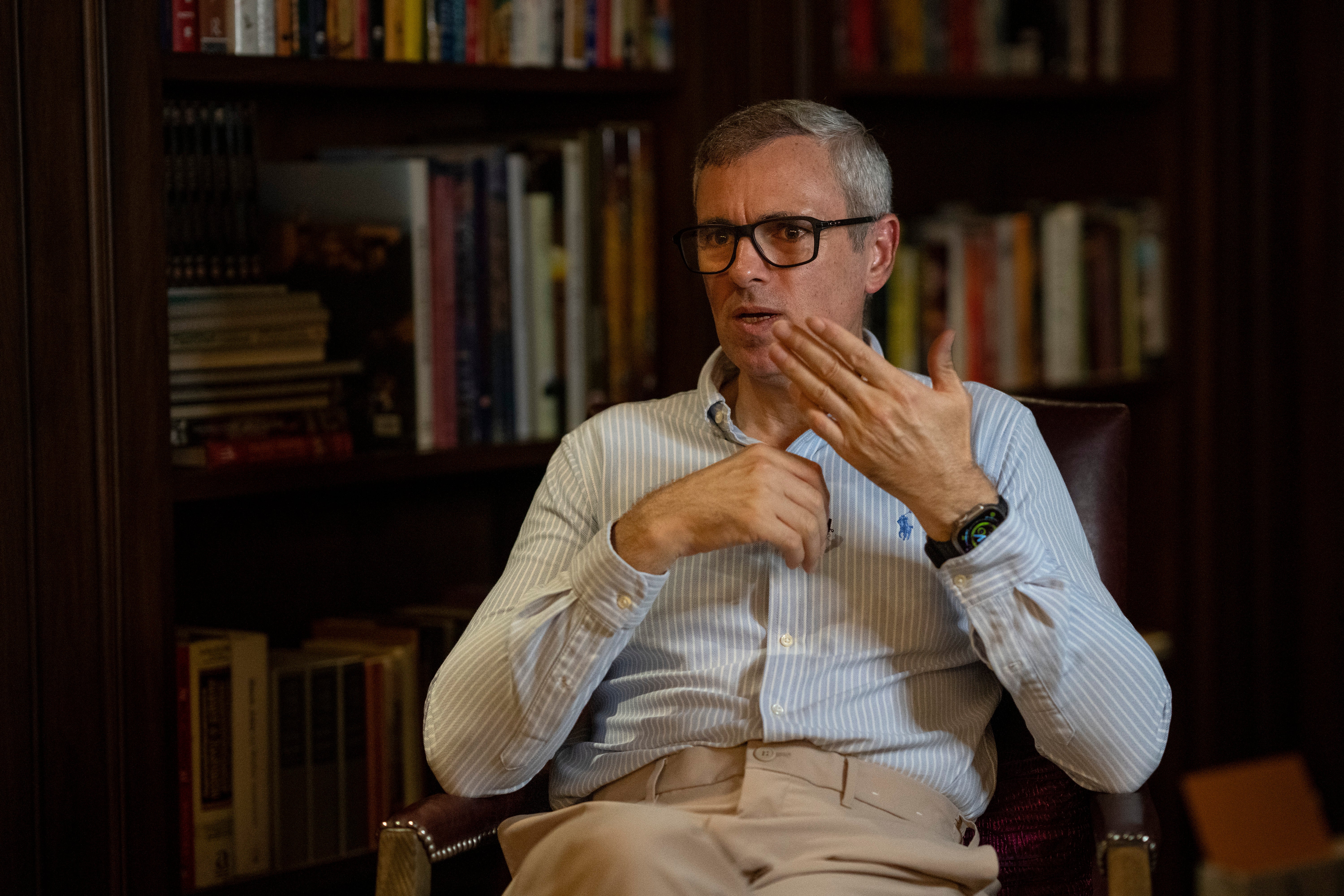Your support helps us to tell the story
As your White House correspondent, I ask the tough questions and seek the answers that matter.
Your support enables me to be in the room, pressing for transparency and accountability. Without your contributions, we wouldn’t have the resources to challenge those in power.
Your donation makes it possible for us to keep doing this important work, keeping you informed every step of the way to the November election

Andrew Feinberg
White House Correspondent
As an armed rebellion against Indian rule raged in Kashmir through the 1990s and 2000s, Jamaat-e-Islami, an influential socio-religious group, called for a boycott whenever an election was held, claiming the exercise was aimed at legitimising what it would describe as New Delhi’s occupation of the Himalayan region, which is also claimed in part or full by Pakistan and China.
But as Kashmir votes in the first regional election in a decade starting on Tuesday, the Jamaat has itself entered the political fray, backing at least 10 candidates in the election. It is a remarkable turnaround for a group that remains banned under India’s anti-terror laws and was once regarded as the mothership of the militant Hizbul Mujahideen.
After Narendra Modi’s government altered India’s constitution in 2019 to do away with the symbolic autonomy of the administrative region of Jammu and Kashmir, it cracked down hard on the separatist movement, jailing thousands of people. The Jamaat, having long been at the vanguard of the movement, was a prime target. Schools associated with the group were ordered shut and the properties of many members were seized in an attempt to curtail its reach and operational capabilities.
As recently as February, the Indian government said that the Jamaat was “continuing to be involved in fomenting terrorism and anti-India propaganda for fuelling secessionism in Jammu and Kashmir, which is prejudicial to the sovereignty, security and integrity of India”.
This is what makes the Jamaat’s participation in the election perplexing, and even experts in the region are divided over what it means. Noor Baba, a renowned Kashmiri political scientist, says it could be a tactical move on the part of a minority within the movement – contesting the election as independents in the hope of “protection or rehabilitating themselves after the suffering they have endured”.
The decision to join the fray, he suggests, may not have involved the group’s jailed leadership. As a result of internal divisions in the past, Prof Baba says, the Jamaat has suffered at the hands of both the Indian authorities as well as the militants. Similar divisions may have cracked open again.
“There are many questions,” he tells The Independent. “Is the top leadership, which is in jail, on board with this or is it not?”

Another theory is that the decision stems from the Jamaat’s desire to have the anti-terror ban lifted. There have been reports about conversations between the Jamaat and intermediaries of the Indian government such as Altaf Bukhari, head of a local political party.
Ahead of this election, Omar Abdullah, the former chief minister of the former state, had urged the Narendra Modi government to lift the ban on the Jamaat to enable its participation in the assembly election. Mehbooba Mufti, another former chief minister and president of the People’s Democratic Party, said she would be “happy” to see the Jamaat return to the electoral arena.

Indian political analyst Apoorvanand Jha, however, sees a more sinister play at work. He says fielding independent candidates is part of a broader strategy of Modi’s BJP to weaken mainstream political parties such as the National Conference and the Congress and reap the dividend.
“The BJP’s aim is to install a government headed by a Hindu chief minister. That can be achieved by securing as many seats as possible in the Jammu region and fielding as many independents as possible in the valley [of Kashmir], making them win and then taking their support to form the government,” he tells The Independent.
The BJP is seeking to control Kashmir politically by creating chaos, he says. “To achieve that,” he adds, “the BJP can do anything. It can go to any extent, play any game, collaborate with the radicals, collaborate with separatists.”
The Independent has contacted the BJP for comment.
India has long held up Kashmir, its only majority Muslim territory, as a symbol of its secularism. But when the BJP government revoked the territory’s autonomy, Kashmiris accused the Hindu nationalist party of trying to change its religious demographic by settling Indians from elsewhere in the region.
Jha says the BJP wants to win the election in order to show its core Hindu base that “see, this is a Muslim-populated area which we have now annexed”.
The candidates backed by the Jamaat maintain that their election participation is about local issues.
“Ideologies work in time and space. We have to be accommodative and flexible,” Talat Majeed, who is contesting the Pulwama constituency, told reporters recently.

Another candidate, Sayar Ahmad Reshi, says their participation in the election is necessary to fill a political vacuum created by regional parties such as the National Conference and the People’s Democratic Party.
The Jamaat’s participation seems to have enthused some pro-India factions in Kashmir. “This election is unique in recent times because the banned Jamaat-e-Islami is openly backing and campaigning for independent candidates owing allegiance to it,” Mr Abdullah said in an interview with the Hindustan Times. “This is a huge change from previous elections. Otherwise, ever since I have seen politics here from 1996 onwards, the Jamaat has been at the forefront of trying to stop people from voting.”
Ali Mohammad Watali, a former police chief of Kashmir, isn’t as enthused. The Jamaat was “pro-Pakistan and pro-terrorism”, he was quoted as saying by Frontline magazine. “Now they have changed their stance suddenly. It looks like this is being done by the agencies so that the BJP can form a government here with the help of new political fronts, including the Jamaat-e-Islami.”
“Agencies” is a catch-all term used in Kashmir for the intelligence, security and surveillance apparatus of the Indian state.
The Jamaat candidates have indicated their willingness to form alliances, before or after the election, with any party that works to “restore dignity to the people of Jammu and Kashmir”.

Prof Saddiq Wahid, a senior visiting fellow at the Centre for Policy Research think tank in New Delhi, tells The Independent the BJP’s actions in Jammu and Kashmir since the revocation of its autonomy have been aimed at creating confusion and chaos. “How is Jamaat suddenly into the picture?” he asks.
He fears that the political landscape of Kashmir is being manipulated to dilute local representation and prevent self-governance.
“They do not want the people of Jammu and Kashmir to have a government that will allow them to govern themselves,” he says, referring to the Indian government.
The fundamental question, though, is whether people will trust the candidates backed by the Jamaat, Prof Baba points out. “How many people will vote for them, support them?”

